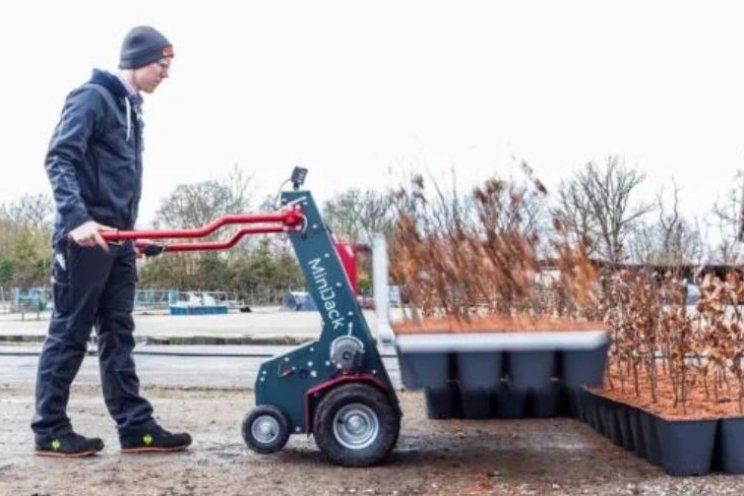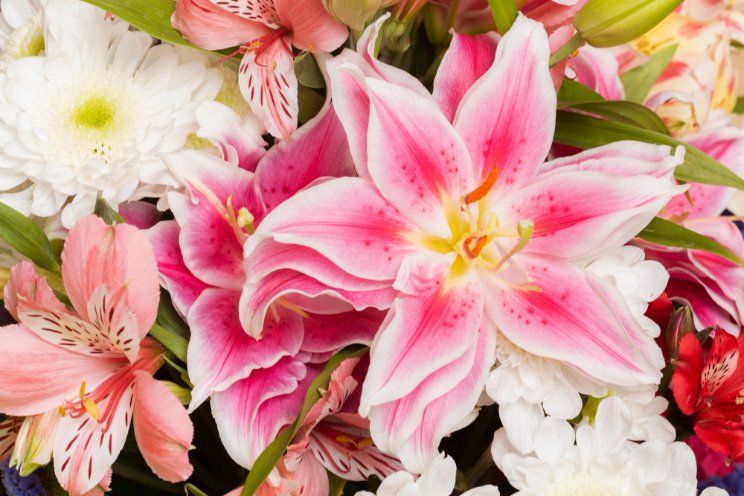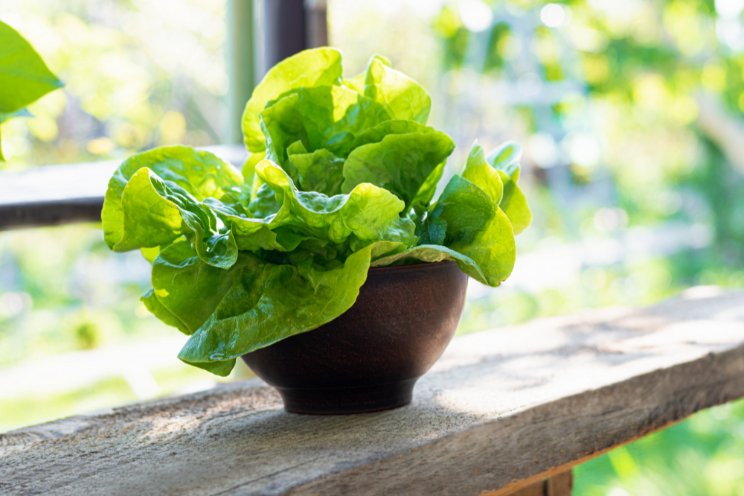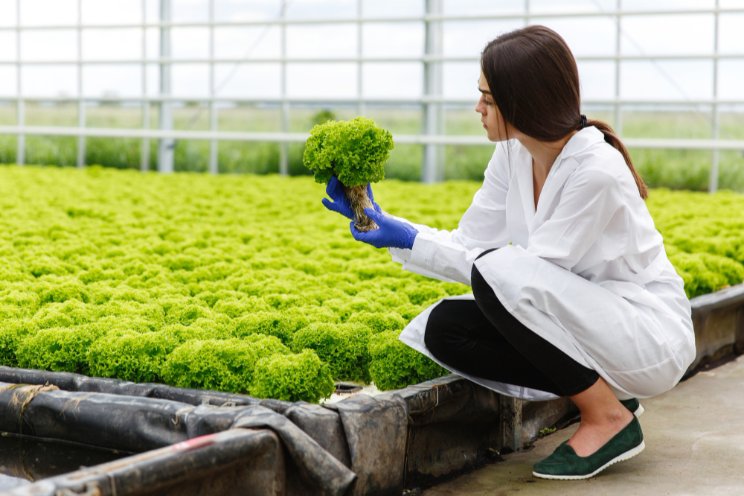The growing success of a happy company
Added on 13 June 2022


Hydroponic lettuce growing in Finland
Producing 5 million heads per year, Viherkaste is one of Finland's 10 largest lettuce producers with about 5% market share. The bulk of their production is for two of the country's largest wholesaler.
You can't put a price on the advice we got from Grodan. We're now better equipped to figure out other issues before they become a real problem.
Growing a lettuce grower
"My wife and I set up Viherkaste in 2007, but the greenhouses have been here since 1980," explains Erkki. "Back then our production was mainly soil-produced, with relatively little pot production. But the company has evolved over the years. Today we produce lettuces and herbs. Most of our 1.5 hectare growing area is given over to traditional pot production. There's also one room of stone wool production, our newest, semi-automatic lines."
Ilkka, who has been with Viherkaste about six years, stresses that it's still very much a hands-on business. "I started in production but today I guess I'm Erkki's right-hand man. As Operations Manager I help manage the growing, support the workers and do some automation maintenance work. With 25 employees we're a small company, so everyone does a bit of everything."
We now produce more from less, making us a greener company.
A problem crops up
"We'd tried cellulose production, but this didn't seem to work when we scaled it up," explains Erkki. "So in 2016 we decided to start working with stone wool, using a competitor of Grodan. Unfortunately, we had a number of problems, for example with the nutrients. At the start of the gutter lettuces were good, but further down the quality deteriorated. We'd also get 2-3 months of good production, then several months where production went badly. So somewhere in 2021, we started talking to Grodan."
It was actually a stroke of luck that brought Viherkaste and Grodan in contact with each other. Thomas Peters, Business Development Manager and technical crop expert at Grodan, heard through the grapevine of Viherkaste's problems. He approached them to see if Grodan could help, and found Viherkaste very open to any expert input.

Diagnosing the issue - from 3,000km
Normally, Thomas and colleague, Susanne Ruthenberg, a fibre technique expert, would have hopped on a plane to check out the problem. But this was in the depths of the Corona crisis, so all contact between Viherkaste and Grodan had to take place via Teams.

"Working remotely was certainly an extra challenge," laughs Thomas, "with Erkki in the greenhouse using his phone camera to show us the crop. But I could see from the images we were probably looking at a Ph-related problem. Along with temperature, water content and EC (Electronic Conductivity), Ph-level is one of the key growing parameters. Ph not only needs to be at a certain optimal level, which varies from location to location; it must also be stable at that level. At Viherkaste, the level was stable but a bit too high. You can solve this in various ways, for example by using nitric acid to lower the Ph-level. But to address the issue in the greenhouse you first need to find the problem in the irrigation room. Working together with a fertiliser expert, we solved the problem in the irrigation room and then ourselves relatively quickly addressed the issue in the greenhouse."
Ilkka picks up the story. "We had a number of issues. Not least, the growing medium itself. We discovered that Grodan stone wool absorbs slightly more water than the stone wool we'd been using before. And more water means more flushing, which in turn means the Ph-levels in the wool don't rise but remain stable. The superior water-air ratio of Grodan stone wool also helps growing, as there's more water in the gutters, which aids floating."
We're no longer satisfied with things being OK. We now always try to improve performance.
Teamwork essential
But Ilkka is quick to add that neither Viherkaste nor Grodan could have solved things alone. "It's important to realise that no one can give you the exact parameters you should use: this amount of water, that much light, etc. We had to figure those combinations out for ourselves. But through the Teams meetings, Thomas and Susanne could give us guidance, for example on how to introduce those changes. So we'd try one thing for a couple of weeks, then another. And by a process of trial and error, we slowly arrived at the right combinations. You can't put a price on all the tips and advice we got from Grodan. It not only helped us solve this challenge. We're now better equipped to figure out other issues before they become a real problem."
Erkki agrees. "Thomas and Susanne's support helped improve quality and production, but also helped us get rid of the unreliability. Reliable production is obviously very important to our clients, and it's a long time since we've had any negative client feedback on the quality or reliability of our products."
"And from our side," adds Susanne, "it's vital when developing this kind of product that we understand our customers' actual needs. Their feedback helps us improve our products. It's as simple as that."
Happy workers
Product quality has improved at Viherkaste since introducing Grodan stone wool, and production risen from 5-7 to 9-11 pallets a day. Nevertheless, Ilkka feels the biggest benefit isn't in the numbers. "You can always make up for quality by cleaning better or growing a little bigger. But now our workers can process the same number of lettuces in fewer hours. So even at peak times, like Christmas or Easter, they don't have to work crazy hours. Less crop cleaning also makes their work easier. It's part of why we have such loyal, happy workers. And happy workers deliver better quality work. We also share our goals with our people, so they're more engaged, and proud of the quality products they help create. And when we get good financial results, we pay bonuses so everyone shares in our success."
Erkki also mentions the environmental benefits from improved quality and efficiency. "We used to get 50-60 heads from every 100 seeds, that's now 95. So we produce more from less, making us a greener company, which we consider very important."

Erkki Nylund
Think for yourself, but dare to ask for help
So beyond helping solve specific lettuce growing issues, has working with Grodan's Thomas and Susanne changed how Viherkaste operate? Ilkka considers this for a moment. "I'd say we've learnt to think for ourselves better. And we're no longer satisfied with things working OK. We now always try to improve performance."
Erkki's tip to other companies is very simple. "If you have problems, be brave and call someone who can help." It's an approach that's clearly working for this thriving Finnish lettuce producer.
This article is part of the Gro-Hacks series, in which we ask partners and friends of Grodan what we can learn from their innovative entrepreneurial stories.
Source: Grodan
More news















